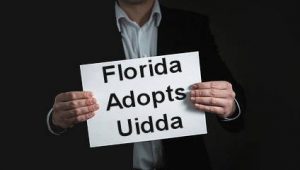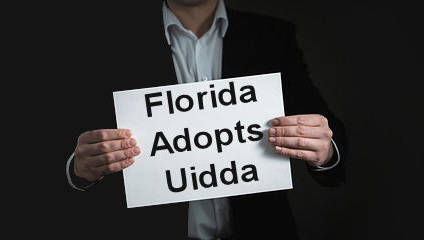 On July 1, 2019, the Uniform Interstate Depositions and Discovery Act (UIDDA) went into effect in Florida.
On July 1, 2019, the Uniform Interstate Depositions and Discovery Act (UIDDA) went into effect in Florida.
This now means that if your Florida attorney is attempting to depose a witness or records from another state that has also passed the UIDDA, they no longer have to get a commission issued first. They can just get a subpoena issued by the clerk of the court in the state they are needing the witness or records from.
This will speed up this leg of the legal process.
As of today, 43 states and the District of Columbia have enacted the legislation, and the other 7 states and Puerto Rico are expected to follow suit.
The act streamlines the process of discovery when litigants of one state issues a subpoena, for records or a deposition, directed at citizens or corporations of another state. No longer will a litigant in the issuing state be required to have the responding state issue a commission.
The new process will have the Clerks of Court issue the subpoena upon request, as long as the discovery is lawful in the state that the litigant is from.
The Uniform Interstate Depositions And Discovery Act In Florida
Below is the text that is in this new statute.
West’s F.S.A. § 92.251
92.251. Uniform Interstate Depositions and Discovery Act
Effective: July 1, 2019
(1) Short title.–This section may be cited as the “Uniform Interstate Depositions and Discovery Act.”
(2) Definitions.–As used in this section, the term:
(a) “Foreign jurisdiction” means a state other than this state.
(b) “Foreign subpoena” means a subpoena issued under authority of a court of record of a foreign jurisdiction.
(c) “Person” means an individual, corporation, business trust, estate, trust, partnership, limited liability company, association,
joint venture, public corporation, government, or governmental subdivision, agency or instrumentality, or any other legal or
commercial entity.
(d) “State” means a state of the United States, the District of Columbia, Puerto Rico, the United States Virgin Islands, a federally
recognized Indian tribe, or any territory or insular possession subject to the jurisdiction of the United States.
(e) “Subpoena” means a document, however denominated, issued under authority of a court of record requiring a person to:
1. Attend and give testimony at a deposition;
2. Produce and permit inspection and copying of designated books, documents, records, electronically stored information, or
tangible things in the possession, custody, or control of the person; or
3. Permit inspection of premises under the control of the person.
(3) Issuance of subpoena.–
(a) To request issuance of a subpoena under this section, a party from a foreign jurisdiction must submit a foreign subpoena to a clerk of court in the county in this state in which discovery is sought. A request for the issuance of a subpoena under this act
does not constitute an appearance in the courts of this state.
(b) When a party submits a foreign subpoena to a clerk of court in this state, the clerk, in accordance with that court’s procedure, shall promptly issue a subpoena for service upon the person to which the foreign subpoena is directed.
(c) A subpoena pursuant to paragraph (b) shall:
1. Incorporate the terms used in the foreign subpoena; and
2. Contain or be accompanied by the names, addresses, and telephone numbers of all counsel of record in the proceeding to
which the subpoena relates and of any party not represented by counsel.
(4) Service of subpoena.–A subpoena issued by a clerk of court under subsection (3) must be served in compliance with the laws of this state and the Florida Rules of Civil Procedure.
(5) Deposition, production, and inspection.–The laws and rules of this state govern and apply to all subpoenas issued under subsection (3).
(6) Application to court.–An application to the court for a protective order or to enforce, quash, or modify a subpoena issued by a clerk of court under subsection (3) must comply with the statutes and rules of this state and be submitted to the court in the county in which discovery is to be conducted.
(7) Uniformity of application and construction.–In applying and construing this uniform act, consideration must be given to the need to promote uniformity of the law with respect to its subject matter among states that enact it.
(8) Inapplicability to criminal proceedings.–This act does not apply to criminal proceedings.
What States Have Not Yet Adopted The UIDDA?
The 7 states and 1 province that have yet to pass the UIDDA include:
- Wyoming
- Nebraska
- Missouri
- Oklahoma
- Texas
- New Hampshire
- Massachusetts
- Puerto Rico
It is expected that these states will soon pass the new Uniform Interstate Depositions and Discovery Act.
If you think your Florida divorce case requires a subpoena to a foreign state, give a call to Men’s Rights Law Firm today at 239-829-0166.
